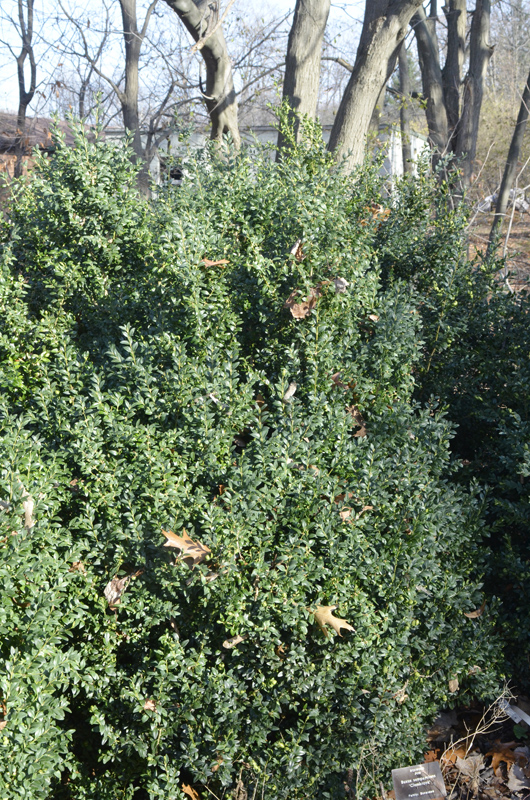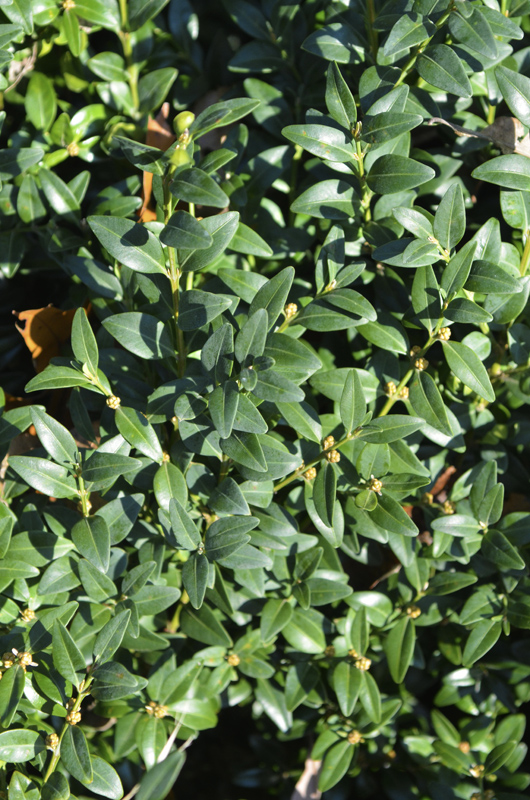
Woody > Buxus > Buxus sempervirens > Buxus sempervirens 'Clembrook'
Buxus sempervirens
'Clembrook'
Clembrook Boxwood
| Family |
| Buxaceae |
| Genus |
| Buxus |
| Species |
| sempervirens |
| Cultivar |
| 'Clembrook' |
| Category |
| Woody |
| Type |
| Shrub (evergreen) |
| USDA Hardiness Zone |
| 6 |
| Canadian Hardiness Zone |
| 5 - 6a |
| RHS Hardiness Zone |
| H6 - H7 (with protection) |
| Temperature (°C) |
| -23 - (-18) |
| Temperature (°F) |
| -10 - 0 |
| Height |
| 120 - 180 cm |
Photographs
Description and Growing Information
Flowering Period
| General Description |
| An upright, weeping plant with evergreen foliage. |
| Landscape |
| Makes for an excellent shrub border or hedge. |
| Shape |
| Rounded evergreen shrub. |
| Growth |
| Slow |
| Pests |
| As of late Boxwood blight has become a major problem both in Europe and most of North America. The fungus Cylindrocladium buxicola causes leaf spots, defoliation and even extensive die-back. The disease can be spread by water splash, tools and footwear and can survive for up to six years in the soil. It thrives in moist, humid environments but is killed when exposed to temperatures in excess of 33 °C for at least a week. The disease also affects Pachysandra, Sarocococca and Buxus balearica, sinica, macowanii, microphylla, bodinieri, glomerata, harlandii, sempervirens and riparia. |
| Habitat |
| Horticultural origin. |
| Notable Specimens |
| Royal Botanical Gardens, Burlington, Ontario, Canada. |
| Propagation |
| Propagate in mid-summer by taking semi-ripe cuttings from the current season's growth. Collect in the early morning using a sharp knife to cut pieces 10 - 15 cm in length. Remove all leaves from the lower third and pinch out any soft terminal growth. Dip into a number 2 rooting hormone, insert into trays or pots of cutting compost (50/50 mix of compost and sharp sand or perlite) and water well. Place in a propagator with bottom heat set at 15°C with or without mist; rooting should occur in 4 - 6 weeks. |

